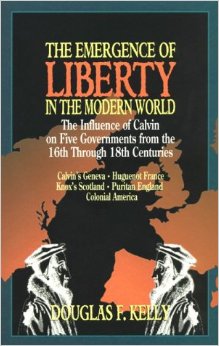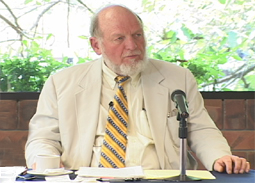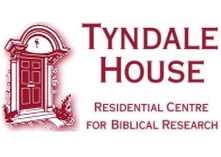
Christianity and Liberty

We have seen in recent days (and months and years) an increasing impatience with, and intolerance toward, the most basic tenets of Christian morality. Most recently, a Christian couple in Idaho is being threatened with arrest (read again: with arrest), because they cannot as Christians agree to perform the "wedding" ceremony of gay persons (they own and operate a wedding chapel). This should not be a news flash. Of course a traditional Christian couple would not want to perform such a ceremony. Since Christianity's inception, Christians have considered marriage much more than a simple legal and social contract. Rather, Christians consider marriage between a man and a woman to be a picture of the relationship between Christ and the Church (see Ephesians 5:22 and following). So of course a Christian committed to basic Christian ethics would refuse to perform what traditional Christianity considers to be completely out of bounds morally (the "marital" union of people of the same sex). I want to write a longer essay or set of essays on this phenomenal development that we are witnessing. But one issue which it forces us to consider is the relationship between Christianity and political order. Much has been written, but here is one book recommendation: Douglas Kelly, The Emergence of Liberty: The Influence of Calvin on Five Governments from the 16th Through 18th Centuries. It is a very good book, and would be a good primer for someone wanting to think through the relationship of the Christian faith to political order. Kelly simply works through--in five case studies/countries--the way in which one strand of the Christian faith has influenced political order, and contributed to such realities as: consent of the governed, the limitation of centralized power, why political tyranny is illegitimate, etc.
- Details
- Category: Recommended Reading Recommended Reading
- Published: 21 October 2014 21 October 2014
- Hits: 4085 4085
D.A. Carson on Systematic Theology and Biblical Theology
A good essay by Don Carson on systematic theology and biblical theology.
- Details
- Category: Recommended Reading Recommended Reading
- Published: 27 August 2014 27 August 2014
- Hits: 5022 5022
Donald Livingston on Lincoln on the Union

Donald Livingston is one of the finest scholars I know. Here he is on Lincoln on the Union.
- Details
- Category: Recommended Reading Recommended Reading
- Published: 19 August 2014 19 August 2014
- Hits: 4236 4236
The Need to Read Real Men

Having been at this a while (I am 48), I am increasingly convinced that one truly needs to find some real men, and learn from them. They are a dying breed. My dad is a real man. And if you want to be a real man, seek them out. Here is a piece by someone who is not afraid to speak his mind, Clyde Wilson: "Liberalism and its Discontents."
- Details
- Category: Recommended Reading Recommended Reading
- Published: 24 March 2014 24 March 2014
- Hits: 6331 6331
Jeffrey Niehaus on War, Covenant, Hearts
Just a quick note here, quoting from Jeffrey J. Niehaus' essay, "The Warrior and His God: The Covenant Foundation of History and Geography," in A.R. Millard, J.K. Hoffmeier, and David W. Baker, Faith, Tradition, and History: Old Testament Historiography in Its Near Eastern Context.
Niehaus teaches Old Testament at Gordon-Conwell Theological Seminary, and I found the conclusion to his essay fascinating.
To quote (p. 312):
"It becomes obvious that certain war practices and theological assertions were common to Assyria and Israel--and indeed I suggest, throughout the ancient Near East. In both cases the king or leader marched at the command of his god. He always proceeded with the help of his god, because (supposedly) a trusting relationship existed between them. One way in which a god might, and often did, help his elect king in battle was to interfere with the 'heart' or the psyche of the enemy, so as to work his defeat."
In the New Testament Paul uses military imagery to depict the spiritual warfare with which Christians are to engage. Instead of following the spirit of the age, and "de-militarizing" the language of the New Testament (and indeed of the Old Testament too), why not simply trust that such language might be there for a reason? God is indeed involved in "battle"--and Christians are to put on various bits of "armor" (Ephesians 6) to enable them to resist the evil one, and to advance God's purposes. We engage in battle too--but always through being in Christ. As Christians we proclaim the gospel, trusting and praying that the gospel itself is the power of God to "interfere" with the hearts of listeners. We are engaged in sharing the gospel in order to "defeat" the non-Christian--but it is a defeat which inextricably is followed by the "victory"/resurrection of the new person, whose heart has been changed by the power of the gospel.
- Details
- Category: Recommended Reading Recommended Reading
- Published: 10 February 2014 10 February 2014
- Hits: 9232 9232
Using Tyndale House Library from a Distance!

Friends:
The library at Tyndale House (Cambridge) is accessible to you at a distance. Tyndale House is one of the finest biblical studies libraries in the world. You can access their resources through their scanning service (which is not costly).
Here are two You Tube links to help you get started:
Enjoy!
- Details
- Category: Recommended Reading Recommended Reading
- Published: 03 February 2014 03 February 2014
- Hits: 6435 6435